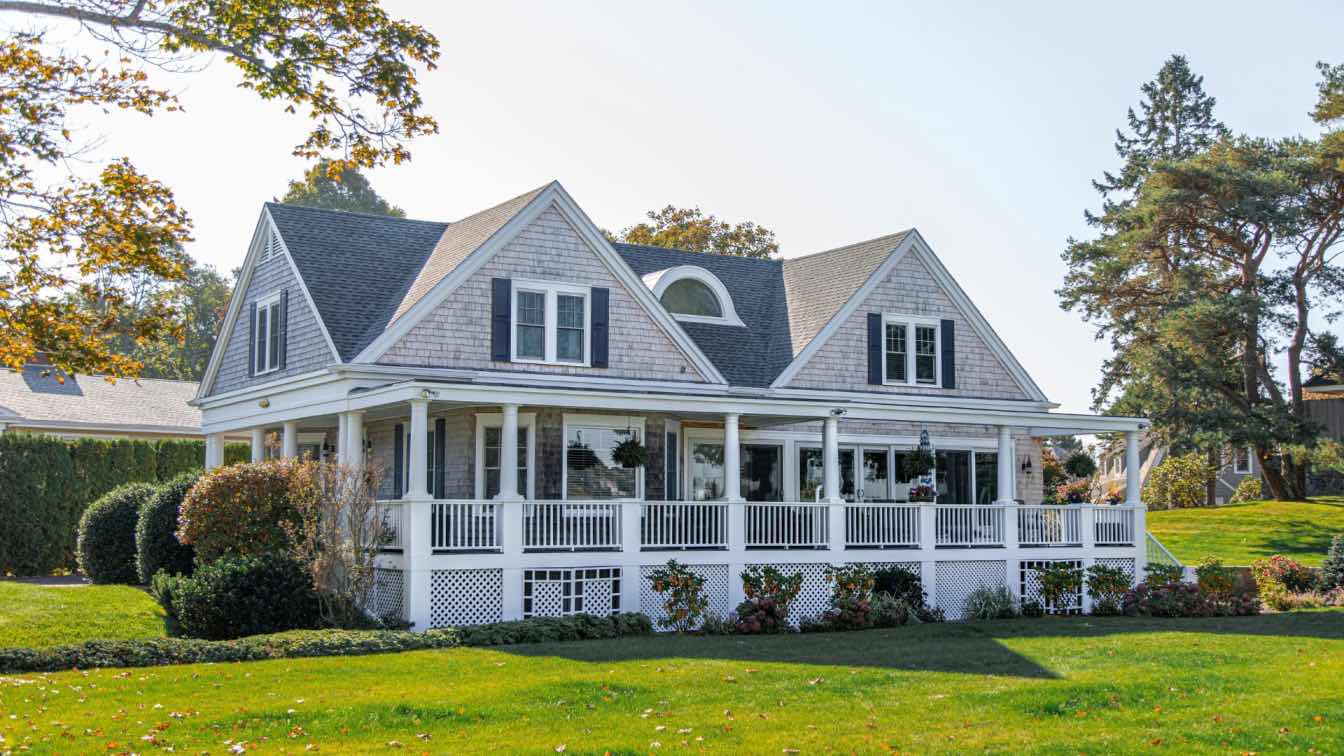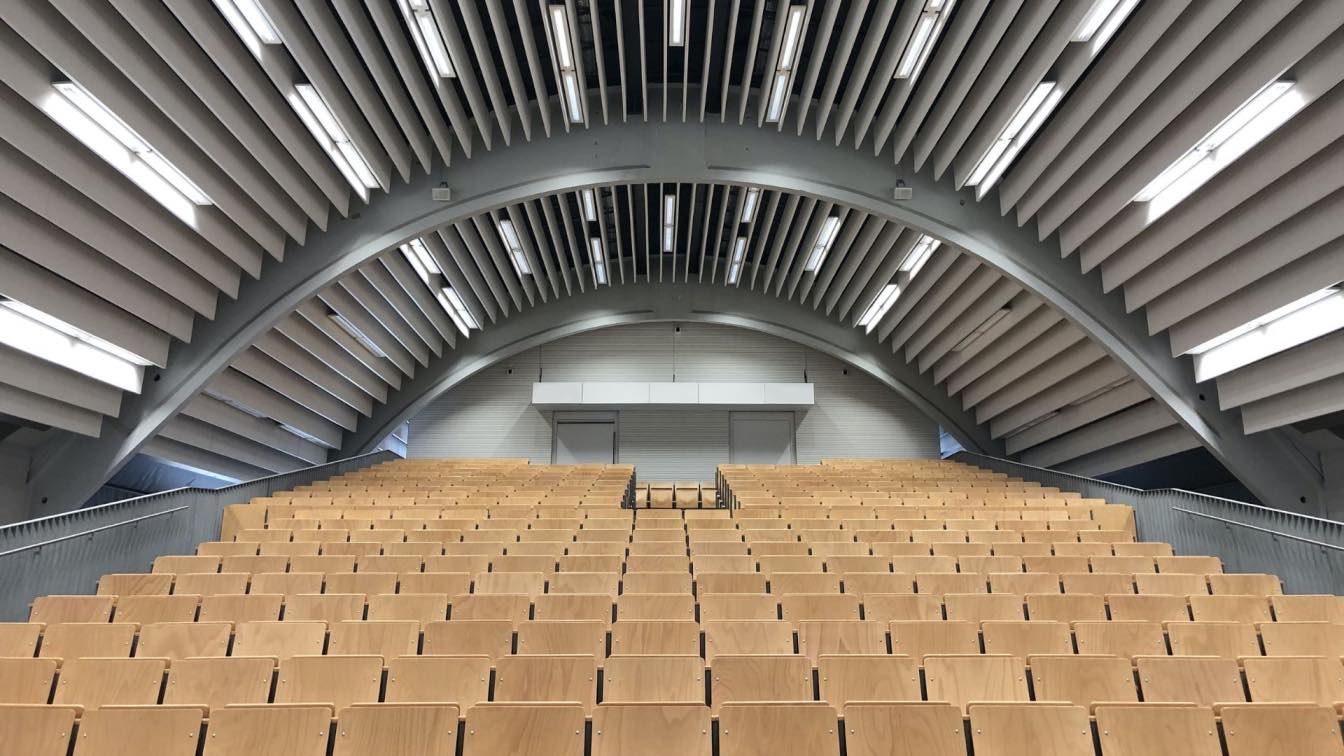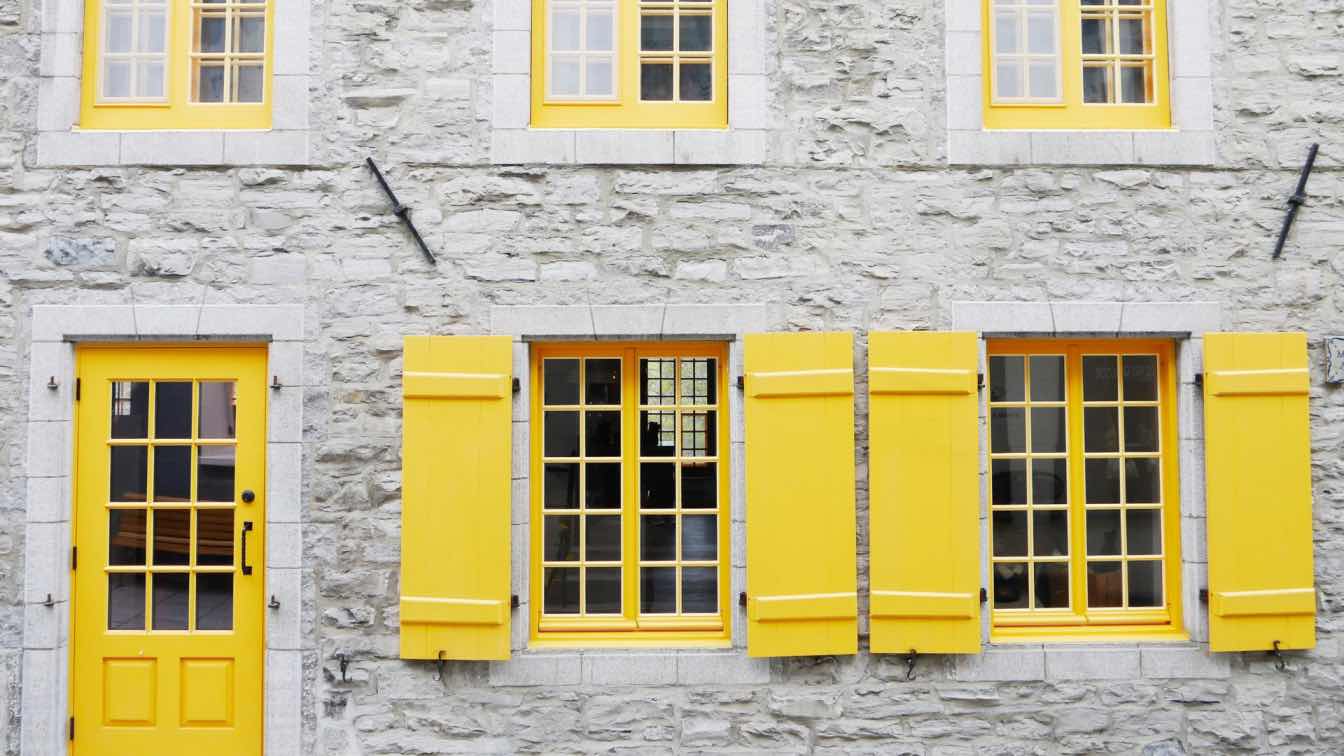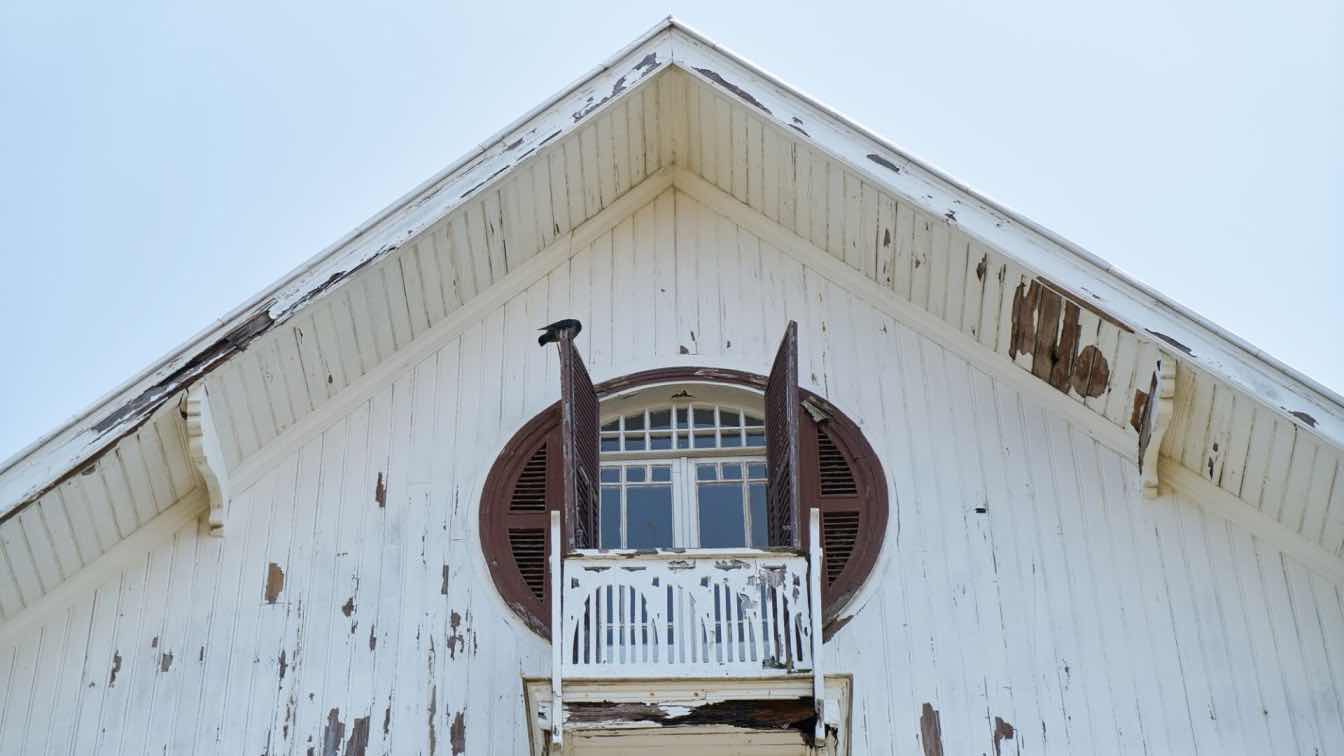Have you noticed your air conditioning working overtime and energy bills skyrocketing lately? As summer temperatures climb, keeping your home cool can feel like a losing battle. But before you turn your thermostat even lower or resign yourself to warmer rooms, consider installing Arrowhead Solar Screens.
How Solar Screens Work
Arrowhead Solar Screens are a specially designed mesh barrier that mount onto the exterior of your windows. They're constructed from durable yet lightweight fabrics like polyester, optimized to block sunlight and UV rays while still allowing air to flow.
Unlike indoor shades that absorb heat once it enters your home, Arrowhead Solar Screens form an external barrier that prevents a large portion of solar radiation from ever reaching your window glass. They effectively act as a shield against the sun’s intense rays during peak daylight hours. Pretty neat trick for lowering indoor temperatures!
The Cooling Effect
The key is that small air gap between the screen material and your window. As sunlight hits the solar screen mesh, much of it gets reflected away while the rest gets absorbed and dispersed before it can pass into your home. This keeps your window glass cooler, stopping thermal heat gain in its tracks.
So by installing solar screens on your home's exterior, you prevent unnecessary heat from even entering in the first place. This in turn reduces the burden on your air conditioner.
Benefits of Exterior Solar Screen Shading
Now take a closer look at some of the main perks adding Arrowhead Solar Screens can provide:
Lower Air Conditioning Usage by 60%
Multiple research studies have verified exterior solar screens can cut a home's cooling costs by 25% to 35%. For some homes facing direct afternoon sunlight, that number can exceed 60%!
This adds up to major energy savings, given air conditioners devour a large chunk of a typical household's electricity. By blocking sunlight before it strikes your window glass, Arrowhead Solar Screens meaningfully reduce the heat that enters your home.
With lower heat gain, your A/C doesn't have to work as strenuously to maintain cooler temperatures. Less run time directly translates to lower electricity usage and savings on monthly bills!
Reduce Heat Gain and Interior Temperatures by 10-15 Degrees F
In addition to lowering air conditioner usage, properly installed solar screens can reduce indoor heat gain by a whopping 10 to 15 degrees!
That means if it’s a sweltering 98 degrees outside, your home will feel more like a comfortable 83 degrees inside. Talk about relief without cranking your thermostat any lower!
By acting as an insulating buffer outside glass windows and doors, external solar screens can prevent over half the sun’s heat from entering your house. Making it much easier to relax in your nice cool sanctuary, even during blistering daytime hours.
Block 65-90% of Harmful UV Sunlight Rays
We all know the sun’s ultraviolet (UV) rays can inflict skin damage like sunburns and increase cancer risk. But did you realize excessive UV exposure can also damage items inside your home?
Over time, UV rays will cause fading on surfaces like hardwood floors, furniture, paintings and more. Fabrics become discolored and worn while paint finishes take on a chalky, weathered appearance. By reducing what makes it through the window glass, solar screens maintain your interiors preservation and quality for longer lasting appeal.
Impact on Home Comfort, Maintenance, Health
Installing Arrowhead Solar Screens doesn’t just save you money on energy bills either! You can now look at some of the additional benefits solar screens provide for home comfort, health and interior longevity:
Privacy with Minimal Light Blockage for Plants
Unlike blackout shades that fully obstruct incoming light, solar screens permit adequate sunlight for nourishing house plants (and saving on grow lamps!).
The tighter exterior screen weaves strike that perfect balance between comfortable visibility and increased privacy levels from onlookers. Allowing you to go about your business without feeling like you're unknowingly starring in a fish bowl!
Glare Reduction on Displays, Reading
Glare from sunbeams shining directly into your eye line creates an awful viewing experience. Good luck reading text or watching your favorite Netflix series when blinding reflections impede clarity!
By diffusing incoming rays before they strike glass surfaces at harsh angles, solar screens can eliminate up to 92% of glare problems. Making displays and reading material clearly visible without bothersome shine interference.
Prevent Fading on Carpets, Furniture
We touched on UV damage earlier, but this pesky sunlight byproduct also accelerates color fading over time. Solar screens form an effective barrier against fabric bleaching and wood discoloration throughout your home’s interior.
Keep furnishings, floor coverings and window treatments vibrant longer while protecting investments in upgraded interiors. Safeguarding from premature replacement costs down the road.
Air Flow While Blocking Bugs, Insects
Unlike tightly sealed indoor shades, solar screen fabrics have micro weaves that don't obstruct outside airflow. This permits refreshing breezes to filter into your home and circulate while windows are open. An awesome perk for pleasant summer nights or temperate climates!
The perforated mesh also deters bugs and little crawly critters from sneaking inside. Taking care of two nuisance problems at once minus the hassles of respraying screens every few months.
Reduce Noise Pollution
Think of solar screens as extra insulation against exterior noise permeating house walls. Their snug placement partially deafens things like alley traffic, nearby playground laughter and neighborhood lawnmowers. Making interior rooms more peaceful for uninterrupted focus, naps or conversation. While solar screens offer an effective barrier against heat, another popular method is window tinting. Both solutions aim to reduce heat gain and enhance energy efficiency, but they work differently. Window tinting involves applying a thin film to the interior of the window, which absorbs and reflects a portion of sunlight. However, solar screens, being an exterior solution, block a higher percentage of sunlight before it even reaches the glass, providing better insulation in hotter climates. For homeowners considering options to keep their interiors cool and energy bills lower, comparing solar screens with window tinting can help determine the most suitable approach based on specific needs and preferences.
Customization Options for Style and Coverage
What sets Arrowhead Solar Screens apart from alternatives like blackout shades? The fact they can be customized to match your home’s personality as well as specific sunlight coverage needs.
Mesh fabric variances in opacity coverage means you dictate the precise solar protection and visibility levels. Bulk fabric orders can even be color matched to your exterior paint tones for an ultra streamlined aesthetic.
The external screens easily mount onto existing window sills with removable frame panels. Making it simple to swap out materials down the road if your ideal balance between sunlight filtering and transparency shifts.
Size and shape customization abilities also permit a flawless fit over unusually angled windows, arches, or curved walls. Optimizing solar blocking functionality room to room.
Solar Screens vs. Window Tinting
Window tint film is another popular solution used to regulate solar heat passing through glass. But how does this compare to exterior solar screen performance? Time to break down some key pros and cons.
Effectiveness in Energy Efficiency, Heat Control
Unlike window tints applied directly to interior glass, solar screens form an external barrier preventing over half of sunlight from striking window surfaces. This equates to better thermal insulation and reduced reliance on air conditioning.
Studies by the U.S. Department of Energy found exterior solar screens lowered heat gain by as much as 77% versus 38% for interior window films. Demonstrating markedly better efficiency at cooling costs and maintaining comfortable ambient room temperatures.
Permanence/Replaceability
Window tint film lasts approximately 5-15 years before requiring replacement from bubbling, cracks or UV wear. Fixed correctly, durable solar screen materials hold up over a decade before any noticeable degradation.
An advantage if replacing windows down the line - solar screens easily detach intact for installing onto upgraded frames. Skipping the hassle and expense of applying fresh window tints.
Aesthetics, Color Choices
No disputing the sleek, modern appearance of darker window tints whether mirrored or smoked shades. Although solar screen fabrics now come in arrays of leathered tones, madera colors and metallic medium grays. Opening up exterior coordination possibilities far beyond clinical blue-greens.
Matching underlying house paint makes screens practically disappear into siding. Similarly, standalone neutral colors blend with contemporary architecture while complementing stone or brick facades.
Installation and Replacement Costs
Professional window tinting runs $6-8 per square foot including materials and labor. Comparable outlay installing solar screens is approximately $3-5 per square foot.
Yes you need to factor exterior accessibility and potential structural soundness for screen mount points. Although major discounts hit if replacing across large portions of window space. And no costs recur down the line from replacing worn film strips.
Potential Downsides and Considerations
Alright, no home upgrade comes without at least a few potential caveats. Before calling your nearest solar screen installer, factor in these considerations:
Visible opacity - There's no skirting the fact exterior solar screen fabrics have some visible density making windows slightly less transparent. For homeowners valuing crystal clear views or sunlight brightness permeating rooms, the loss of clarity could feel disagreeable.
Nighttime lighting - With solar screens in place, neighbors, passersby and family members observe concentrated interior lighting conditions after dusk. Drawing more attention to movements inside versus open windows masking activity.
Insurance uncertainty - Renters or homeowners insurance policies generally cover damaged exterior solar screens. But unusual circumstances, deductibles or policy caps can complicate sufficient coverage. Know replacement needs in catastrophic events like hail storms or falling trees before assuming protection.
Cleaning obligations - Expect an extra cleaning step two times per year to spot treat visible dust and dirt buildup on screen meshes. Otherwise count on hiring window washers charging slightly more for carefully working around the barrier material.
Key Takeaways
Installing solar window screens like those professionally manufactured by Arrowhead Solar Screens makes your home more comfortable, efficient and eco-friendly. Benefits like lowering air conditioner usage, blocking UV rays, preventing interior fading and allowing for customized aesthetics demonstrate why more homes rely on exterior solar barriers.
Mounting durable exterior screen materials specially designed to reduce solar heat gain and glare is a smart upgrade. One generating major energy savings over sweltering summer months when electricity demand spikes. Making your largest appliance work less to maintain cooler indoor sanctuary temperatures. Investing in external window screens literally shields what matters most - the sanctity of home ensuring comfort for years ahead.





